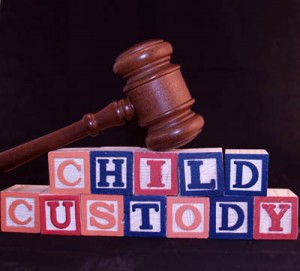Life is not static. Circumstances and events in parents and children’s lives sometimes necessitate the non-residential custodial parent (parent who doesn’t have custody) bringing a proceeding to change the custody arrangement regarding the child or children of the parties. There is a two-step standard which must be met by the parent seeking to have custody changed. Step one involves providing documentation and evidence to the court showing there has been a substantial change of circumstances with regard to the current situation involving where the child resides. This places a significant burden on the parent seeking to change custody. Step two requires a showing that the requested modification of custody will be in the child or children’s best interest.
Family Court or Supreme Court
If the custody situation involving the child or children was part of a judgment of divorce taken in the Supreme Court, the parent seeking to modify custody has a choice of either going back to the Supreme Court or going to the Family Court and presenting his or her case in that venue. There are strategic reasons as to why one would choose each of these courts. The circumstances and events in each individual case would determine the choice to be made.
In the event the parents were never married, the only available venue to bring the proceeding either to establish custody initially or to modify a prior custody order of the Family Court would be in the Family Court.
Attorney for the Child
When the application to modify custody is made, if the current custodial parent seeks to retain custody they will oppose this application. When the case is presented to a judge, the judge in most circumstances, will appoint an attorney to represent the child or children. The attorney who represents the child or children will interview them, look into the allegations in the petition, and present their point of view to the court with regard to which parent he or she would rather reside with. If there are two children, sometimes, the court will appoint a different attorney for each child. Unfortunately, the attorney for the child or children is strictly an advocate and is supposed to present their point of view which may not necessarily be in their best interest.
Difficulties in Being Successful in Contested Custody Modification Proceedings
The concept of burden of proof is sometimes not understood by individuals who seek to change a child’s custody. The party seeking to modify the prior custody order must show at a hearing by a preponderance of evidence that there is both a substantial change in circumstances with regard to where the child or children are being raised and that this change in custody will be in their best interests. There are evidentiary rules which courts follow with regard to these presentations. The fact that they are unhappy or that the parent bringing the proceeding has a nicer home in a better school district and/or he or she has developed a much stronger relationship with them would not necessarily meet the burden of proof to change custody.
Conclusion
If you seek a change in custody of your child or children, you may only get one chance to bring this proceeding. To maximize your chances of being successful, hire an experienced child custody attorney to represent you in these proceedings.

 The Appellate Division for the Second Department, an appeals court, in the Matter of Coull v. Rottman, 2014-1516, held a father who had been prevented from seeing his son by the child’s mother no longer would be obligated to pay child support.
The Appellate Division for the Second Department, an appeals court, in the Matter of Coull v. Rottman, 2014-1516, held a father who had been prevented from seeing his son by the child’s mother no longer would be obligated to pay child support.
 Justice Leonard Steinman sitting in a Supreme Court Matrimonial Part in Nassau County recently had a case before him where the husband claimed the wife had turned his sons against him. He also claimed the wife was trying to turn his daughter against him too. During this divorce case the wife argued the husband was a deadbeat father. She claimed he attempted to “starve” her and the children by intentionally taking action to have his income reduced. Justice Steinman found the sons had “by deeds and words vociferously proclaimed their hatred of their father.” He also noted the daughter had also expressed some hostility towards her father.
Justice Leonard Steinman sitting in a Supreme Court Matrimonial Part in Nassau County recently had a case before him where the husband claimed the wife had turned his sons against him. He also claimed the wife was trying to turn his daughter against him too. During this divorce case the wife argued the husband was a deadbeat father. She claimed he attempted to “starve” her and the children by intentionally taking action to have his income reduced. Justice Steinman found the sons had “by deeds and words vociferously proclaimed their hatred of their father.” He also noted the daughter had also expressed some hostility towards her father.
 Elliot S. Schlissel is a
Elliot S. Schlissel is a  In a situation where you are a father who has had an active relationship with your children, and you are now facing a divorce, what should you do to maintain your relationship with your children? To start with, you should do everything in your power to maintain the relationship you had with your children while your marriage was intact after your marriage breaks up. This means you should spend as much quality time with your children as is reasonable. To become the
In a situation where you are a father who has had an active relationship with your children, and you are now facing a divorce, what should you do to maintain your relationship with your children? To start with, you should do everything in your power to maintain the relationship you had with your children while your marriage was intact after your marriage breaks up. This means you should spend as much quality time with your children as is reasonable. To become the 





